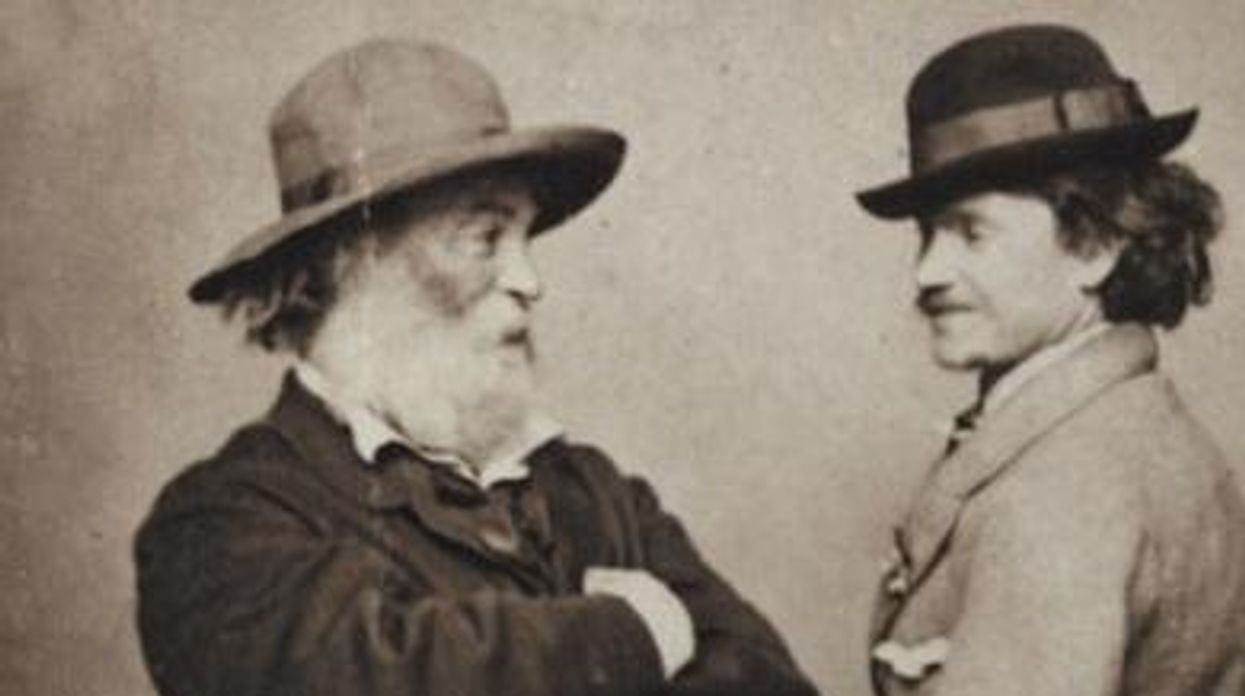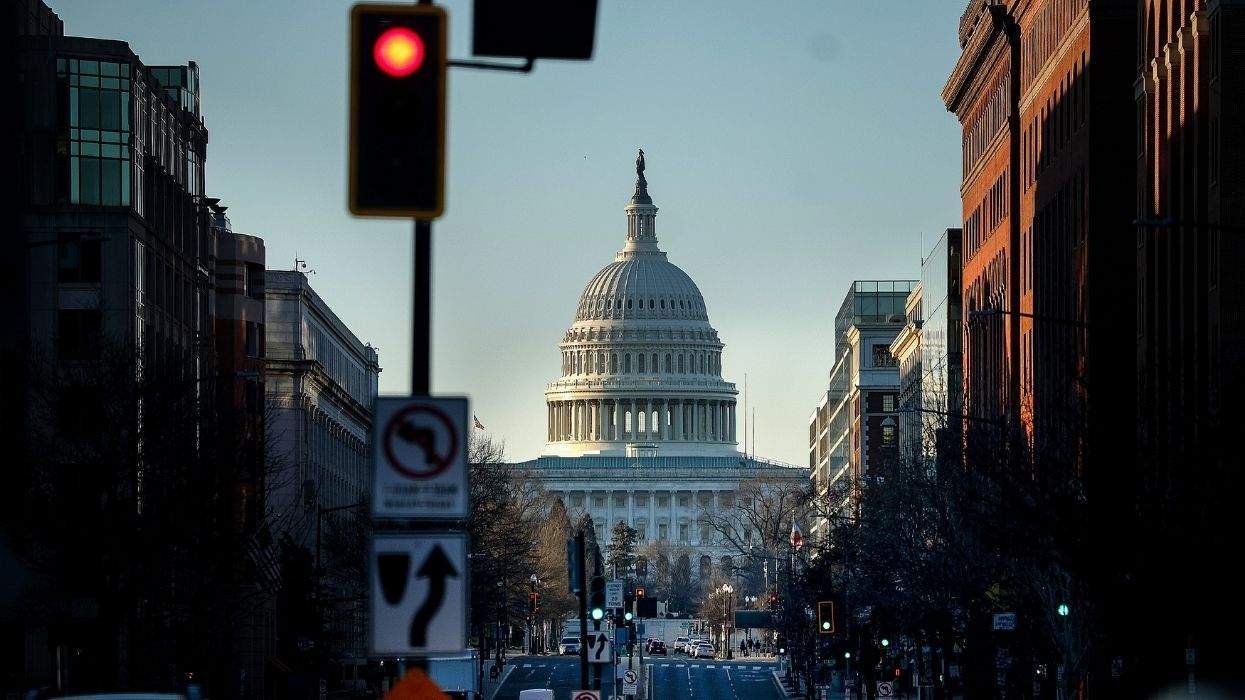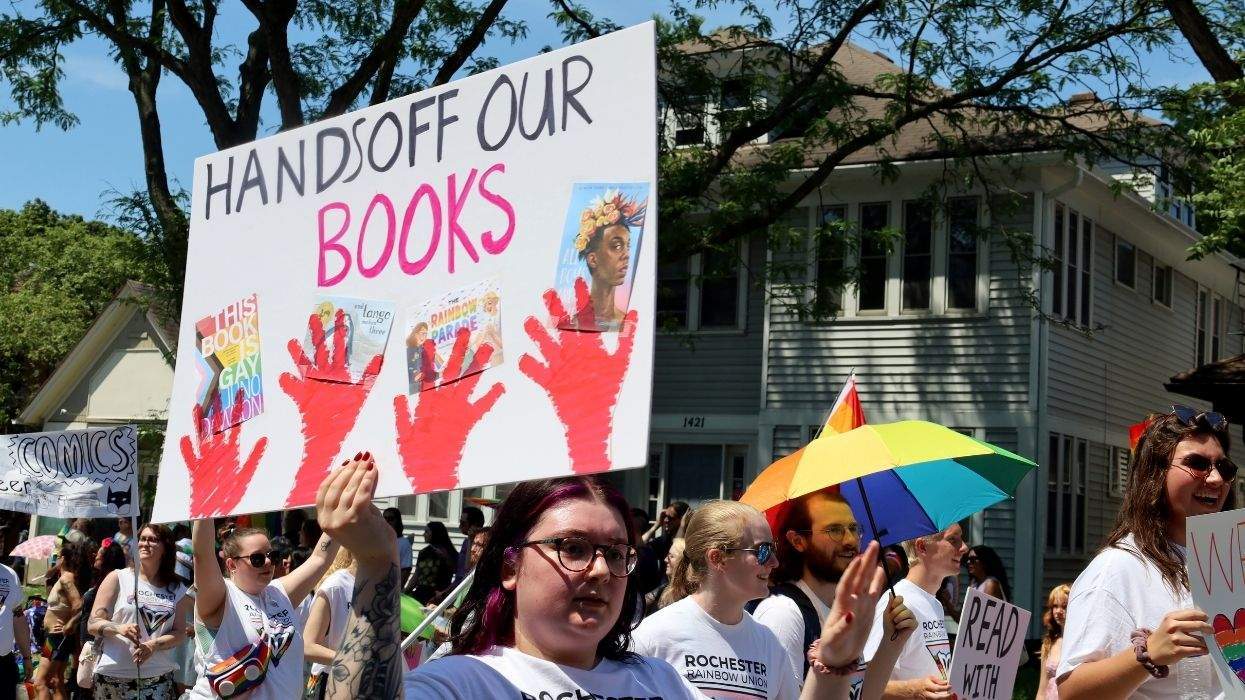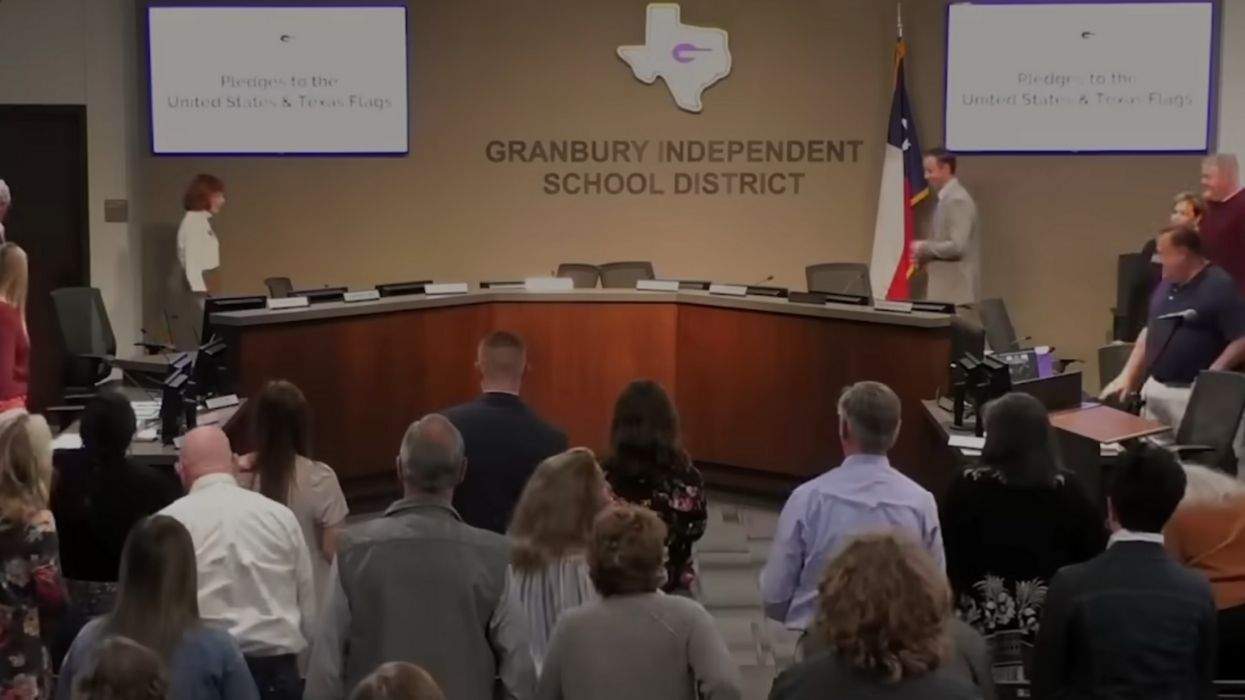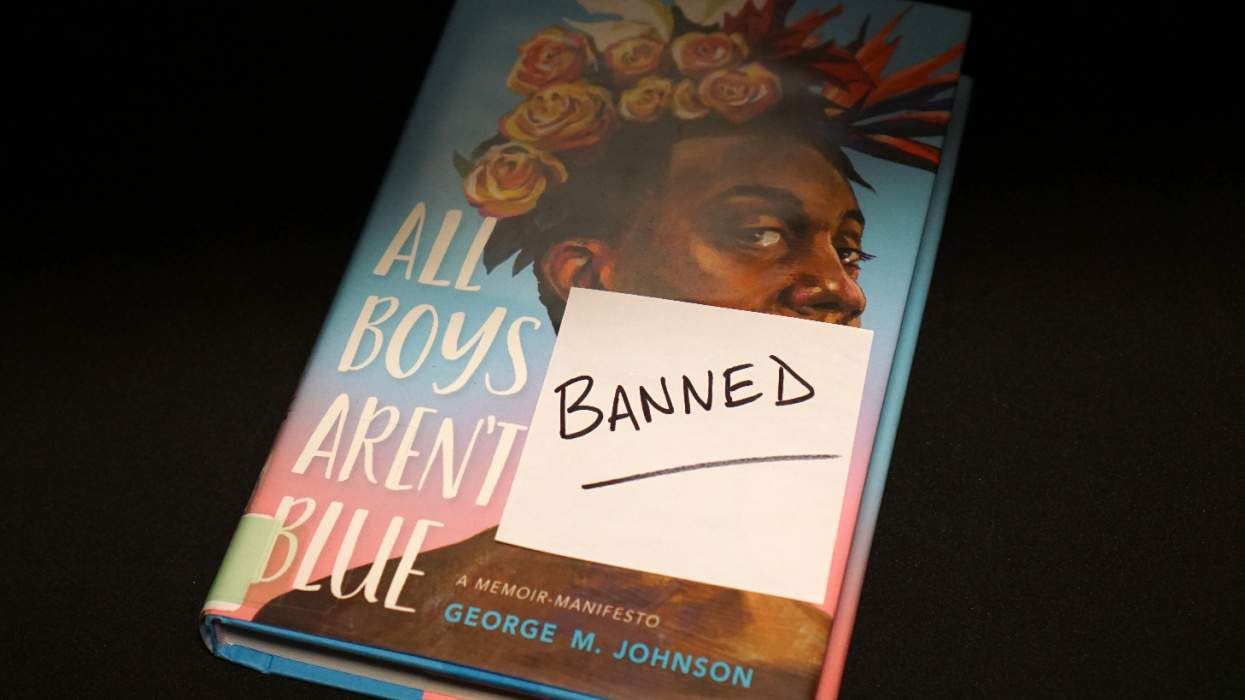Few works hold a more venerable place in the American literary canon than Walt Whitman's Leaves of Grass -- the poet's celebration of life, country, and sexuality -- and a tome that Whitman sought to refine and expand over the course of several decades before his death in 1892. The result was a revolution in American poetry that would not only transform the field of world literature, but also change the way we view science, culture, and religion.
In his new book Walt Whitman: Shamanism, Spiritual Democracy, and the World Soul (Eloquent Books), Steven B. Herrmann, a Jungian writer and psychotherapist in Oakland, Calif., delves into the inner development, the bi-erotic imagination, and the shamanism of America's seminal bard.
Advocate.com: What do you believe "homosexuality" as we know it today meant to Whitman?
Herrmann: Of course the word "homosexuality" was not coined until after 1860, when the third edition of Leaves of Grass was published, so what homosexuality meant to Whitman can only be examined through the metaphors he used to describe same-sex love. Homosexuality meant love: bodily love, soulful love, spiritual love between men.
Whitman also has some wonderful images in his poetry of a supreme homoeroticism between women.
From the one spear of grass in 1847, to the two men thrusting and holding themselves tight and hurting each other as the bride and the bride groom in 1855, to 1860, we suddenly see a new metamorphosis of the images in the "Calamus" poems of Leaves of Grass. Here, he says to each male and female reader, whether gay, bi, trans, or straight: "Here to put your lips on mine I permit you, / With the comrade's long-dwelling kiss, or the new husband's kiss, / For I am the new husband, I am the comrade." And he said it 150 years ago. A miracle!
What homosexuality meant to Whitman is the end to sexual discrimination, and the right of marriage equality for all people -- a celebration of the cornerstone of spiritual democracy that he inaugurates for us.
Why does Whitman's work continue to resonate so powerfully?
Reading the 1860 edition of Leaves of Grass during the fall of last year was a boon to me. Whitman was one of the fiercest promoters of marriage equality, women's rights, and religious liberty across the globe. His role as a liberator of world culture was spearheaded by a single spear of grass! How could one spear of grass launch an international movement toward change? This is extraordinary.
It begins in 1847 with his metaphor of the "Fierce Wrestler." While the highly charged homosexual content of this poem was carefully edited out of the first edition, what remains in the first edition of Leaves of Grass is the following metaphor, its experiential basis unmistakable: "Thruster holding me tight and that I hold tight! / We hurt each other as the bridegroom and the bride hurt each other." Contained in this description of penetrative copulation between two men is a new image of the sacred, in which homosexual and heterosexual unions are placed on a level of physical and spiritual equivalence.
This equivalence of meaning is captured beautifully, I feel, in the metaphor of the "new husband" in the "Calamus" poems. I mention this concern surrounding the issue of same-sex marriage because of how important it is in our sociopolitical debates today, and because it demonstrates how relevant Whitman's views on equality are for LGBT people, for women, for all nationalities, and all races. What the nature of Whitman's homosexual experience was is impossible to tell, but what's clear from the evidence we have amassed about him is that Whitman's vision was profoundly forward-seeing. Whitman predicted over 150 years ago that the marriage bond would eventually be equalized.
What is a "poet-shaman," and why do you consider Whitman to be one?
"Poet-shaman" is a term coined by the late Santa Cruz poet William Everson. A poet-shaman traces language to primitive roots in the human psyche and performs his or her work in an ecstatic state of consciousness. In section 43 of "Song of Myself," Whitman writes: "Enclosing worship ancient and modern and all between ancient and modern, / ... beating the serpent-skin drum." The serpent-skin drum! This, I don't have to remind Northern Californians, is shamanism. Whitman beats the serpent-skin drum for spiritual democracy, which arises from the indigenous peoples of the earth who were the first to embody androgyny in their sexual and spiritual lives, some of whom were shamans. Whitman comes out of this shamanistic tradition.
What do you believe your scholarship has revealed to you about Whitman and his sexuality?
Many of us who have been reading Whitman, studying literary criticism, and reading biographies about him for decades have known that some kind of a sexual experience led him to the transcendent ecstasy he describes in "Song of Myself." Yet the answer to the question about his sexual identity lies in the 150th anniversary facsimile edition of the 1860 edition of Leaves of Grass that was just re-published last year. Now that we have the original text available in print, interested readers can come up with their own answers.
For many, the obvious answer might be that he was bisexual and later chose to live a gay life, after 1859. There has been a restoration of a series of same-sex portraits depicting Whitman with different men seated in a traditional marriage pose [see photo above of Whitman with intimate friend Peter Doyle], which shows his homosexuality with such transparency that it's hard to dispute he was gay. It's also possible, even probable, that Whitman had at least some sexual experiences with women, which is why he can insist that the American soul, in his view, is bi-erotic.
What is "bi-erotic marriage," as you write about in the book?
I coined the term bi-erotic marriage to describe the two conjunctions in all women and men. Whitman poetry is bi-erotic in the sense that it inheres to the embodied erotic experience of both women and men in both their heterosexual and homosexual iterations of it. Over the last several years, I have come to view Whitman's bi-eroticism in the two poetic clusters, "Children of Adam," and "Calamus," as pivotal to his vision of spiritual democracy, which does not leave anyone out. His poetry expresses the paradox of masculine and feminine opposites that has traditionally limited the fantasies of poets. Standing up for the sexual in all its forms was Whitman's "life task."
Looking at the entire corpus of his writings and studying carefully where he put the homosexuality in and where he left it out, it's clear to me that he formulated a spiritual democracy that would include everyone's bodily experience. He needed to include his own sexuality enough to consider women's experience too, and what he wrote is still true today, as it was when he was first read by women in his day who really felt liberated by him. So much so that Anne Gilchrist, a published writer across the Atlantic, moved to Philadelphia with her two children to court him.
After Whitman sent her his ring, Gilchrist traveled with her children from England to offer the poet her hand in marriage. Whitman kindly declined and became her intimate friend instead. Shortly after he sent his ring to Anne, he gave a second ring to his young friend, Harry Stafford, and Stafford cherished it for the rest of his life. The two rings make up a bi-erotic pair.
Both rings were complicated by Whitman's affections, because he did not know what they meant fully and his emotions got in the way, but they both were necessary for his betrothal to the world soul at that time. He fussed over them. How he fussed! He fussed over Harry's ring more because it meant everything to him, even if he was not clear what it might mean to LGBT readers today. It symbolized his union with the Great Camerado, a Spanish word that he anglicized and masculinized. It translates literally as a male "bedmate." Walt loved Anne, and he was not heterophobic, but it was never the same as his love for the men he posed with for the wedding photos, or that one special man whom he ardently loved and whose love was not returned.
Thus, Whitman inscribed on the cornerstone of American democracy an equivalent value for same-sex marriage and heterosexual marriage. He made them equal. He married them both in a great symbol of an international marriage circle, which I speak about in my book.
Click here for more information on Steven B. Herrmann's book.
